CREATING SPACE FOR VIETNAMESE TO "LIVE" IN SCHOOLS
As the Chief Editor of Macmillan English textbooks from grades 1 to 12 (General Education Program 2018), Mr. Hoang Tang Duc, lecturer at the Faculty of Foreign Language Pedagogy (Vinh University), and founder of Openland English, believes that introducing English from grade 1 does not reduce the quality of Vietnamese, if it is designed according to the philosophy of language education.
According to Mr. Duc, many studies on early bilingualism show that when the mother tongue is intentionally cultivated, learning an additional foreign language helps increase metalinguistic awareness, expand conceptual knowledge and support the transfer of reading and writing skills between two language systems.
"The risk only appears in the subtractive bilingualism model - that is, cutting down on Vietnamese time, replacing the subject with English or teaching in a trick-based and exam-preparatory way. At that time, Vietnamese expression is easily impoverished. The problem lies in the way of doing things, not in English itself," Mr. Duc emphasized.
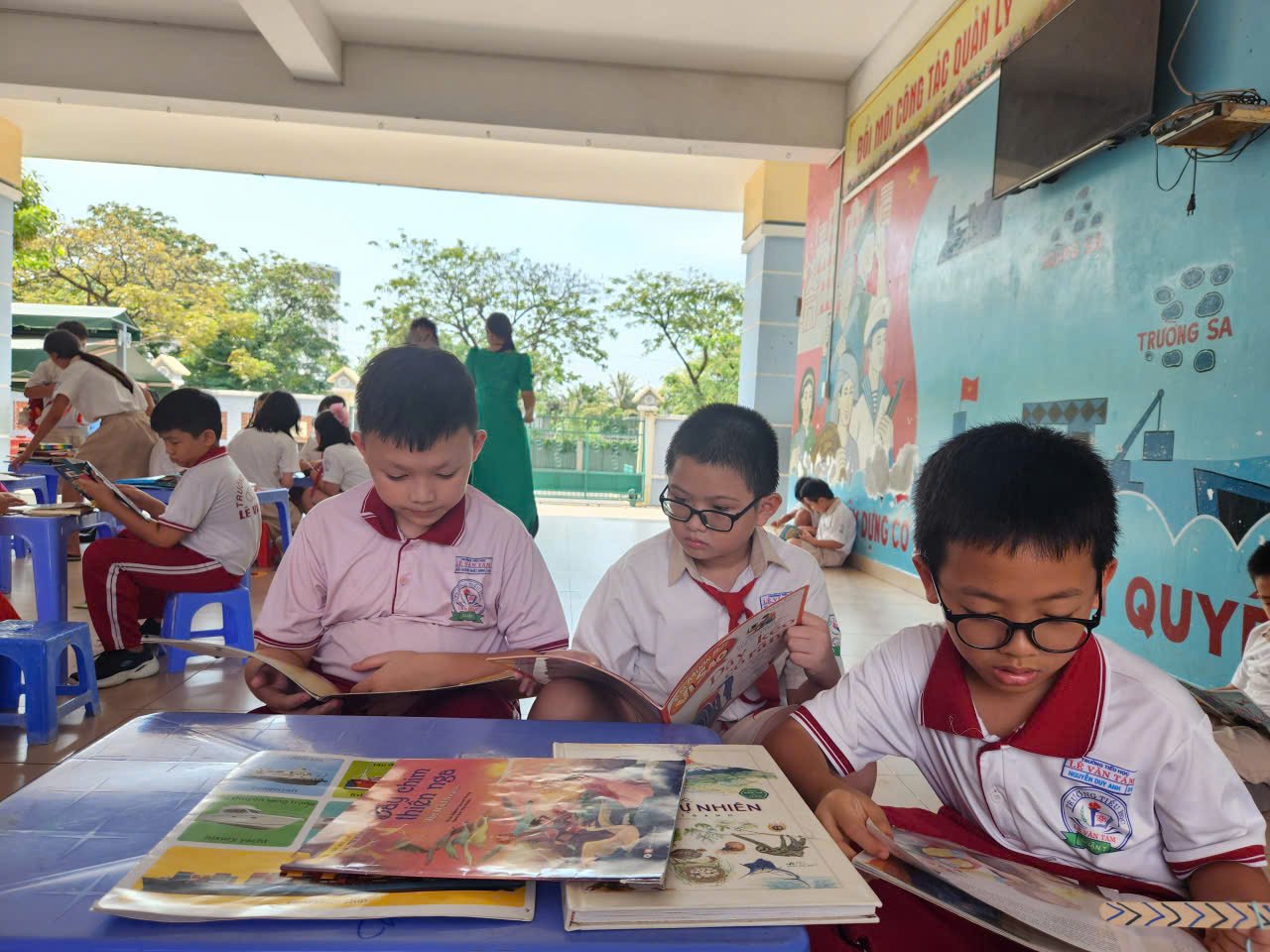
Primary school students in Ho Chi Minh City during a reading festival
PHOTO: THUY HANG
The teacher also noted that we should not be extreme in banning translation and only speaking English, because "children need to bridge ideas in their mother tongue to understand the lesson more deeply."
Regarding the direction of teaching organization, Mr. Duc believes that it is necessary to clearly define the role of each language: Vietnamese plays the role of the language of thinking - organizing ideas - arguing, English is the language for participating - describing - presenting - connecting. "When these two rails run parallel, the learning train will run fast and safely," he said.
"Vietnamese is the language for students to think deeply, English is the language for them to participate widely," the teacher concluded.
From a pedagogical perspective, he proposed an additive bilingualism model: Continue to nurture Vietnamese while simultaneously fostering English proficiency according to grade level. In addition to the curriculum, the environment and learning materials are also important. Mr. Duc recommends not "certifying" the early stages of life, but creating a space for Vietnamese to "live" in schools: reading corners, book festivals, literary interactions, Vietnamese storytelling activities... Along with that, organize English clubs and projects that are practical, gentle and interesting.
HELP CHILDREN DEVELOP AND EXPRESS A VERY RICH EMOTION IN VIETNAMESE
According to Ms. Truong Thu Trang, teacher training expert at HEW London - Education Consulting Hub and co-founder of the Community of English Teaching Practice (CEP) which attracts more than 39,000 teachers, international studies show that learning two languages in parallel does not hinder the development of the mother tongue, nor does it lead to language disorders if children develop normally cognitively and are approached properly. Therefore, it is okay if children learn English from grade 1, but it also helps children increase their ability to recognize and compare the structure of sounds, rhymes and meanings between the two languages.
To preserve the purity of Vietnamese, especially at a young age, Ms. Trang believes that we should not be too perfectionist in the early stages and too rigid in building a 100% English environment. In fact, schools and classrooms should allow students to "code-switch" in a gentle manner, using the "sandwich" method (that is, teaching in English - briefly explaining keywords if necessary in Vietnamese - then confirming in English).
In addition, schools and families also need to maintain a solid Vietnamese foundation for children, such as regularly reading stories, telling stories, playing Vietnamese rhyming games, helping children develop and express their emotions richly in Vietnamese.
"When children have a good grasp of their mother tongue's sounds and rhymes, learning English becomes more natural," Ms. Trang shared.
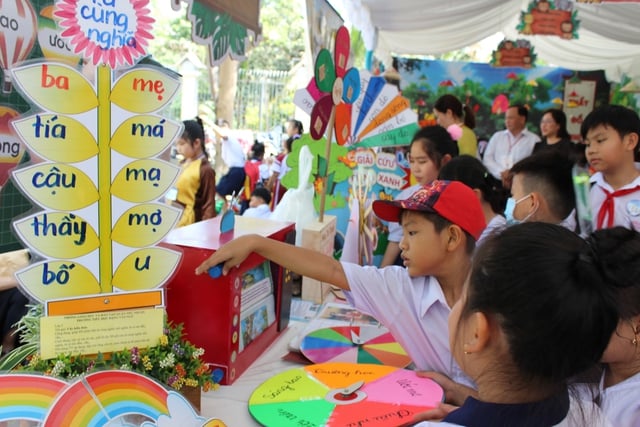
Primary school students in the festival "I love Vietnamese"
Photo: Thuy Hang
PROTECTING A PURE VIETNAMESE LANGUAGE IS ALSO PRESERVING CULTURE
Dr. Le Bao Thang, Director of the international education consulting company OSI Vietnam, asserted that he cannot accept the Vietnamese language being "distorted", half-Western, half-Vietnamese, when it is manipulated, added to, and "created" by a group of young people like it is now.
"When I went to a university in the US to visit Vietnamese students studying abroad and talked with them, I told them that when talking to Mr. Thang, they can use all English or all Vietnamese. We should not mix half English and half Vietnamese," said Dr. Le Bao Thang.
"Once my child also inserted a few new words that are "slang" of today's youth, I did not understand, I had to ask him to explain. After understanding, I asked him, do you know the "root" of it in Vietnamese? You need to know the root, the initial word in Vietnamese, and understand how to use it. In an environment that requires professionalism and politeness, do not forget Vietnamese and how to use it properly. The role of parents is very important in shaping the daily speech of their children", Dr. Thang shared more.
Dr. Thang affirmed that despite integration, even though English will be the second language in schools in the future, Vietnamese people need to have a solid understanding of Vietnamese, its cultural layers, and the context of use... then learning another language will be meaningful. "Because Vietnamese is also the culture, tradition, and root of our nation. If the Vietnamese language is distorted, how can we preserve our culture and national identity?", Dr. Le Bao Thang expressed his opinion.
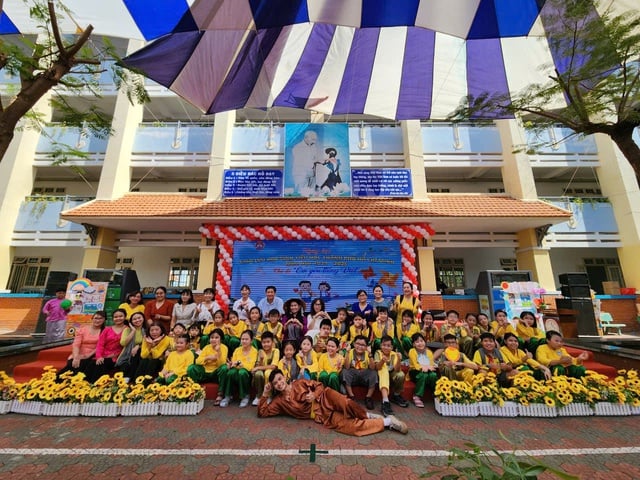
Students participate in activities to support students in developing Vietnamese such as book festivals, literary interactions, Vietnamese storytelling activities...
Photo: Thuy Hang
RESPONSIBILITIES OF FAMILIES AND TEACHERS
Ms. Pham Bao Hanh, Principal of Tan Phong Kindergarten, Tan Hung Ward, Ho Chi Minh City, said that preschool children are introduced to English at school, but it is only "acquainted" as the name suggests. At preschool age, when children are learning to speak and develop language thinking, it is very important for children to learn their mother tongue. In the contents of the current preschool education program of the Ministry of Education and Training, children must have a solid foundation in Vietnamese and must be able to speak their mother tongue clearly. Ms. Hanh believes that parents should not be greedy when they see their children at this age speaking only English at home, or be happy when their children speak English mixed with Vietnamese.
At the same time, according to Ms. Hanh, it is very harmful for preschool children to imitate TikTok channels and many other social networks to say "slang" words, half English and half Vietnamese words, affecting the child's language development later on. Therefore, it is very important for adults, families and teachers to take responsibility in caring for, nurturing and educating children every day.
"Every teacher must be a role model, a moral standard, and be precise in their speech with children, from every song they sing, every story they tell children every day, and in every way they communicate with colleagues...", Ms. Hanh said.
What do students suggest?
Nguyen Thai Hong Ngoc, a student at Phu Nhuan High School (Phu Nhuan Ward, Ho Chi Minh City), said that in order to preserve the purity of the Vietnamese language, it is necessary to reconsider teaching English entirely in subjects such as literature, history, and geography. Because teaching these subjects in English not only makes students feel unfamiliar with the terminology but also unintentionally breaks the connection between young people and Vietnam's culture. "Many lessons and emotions can only be fully conveyed when using Vietnamese," Ngoc said. Meanwhile, for subjects such as mathematics, chemistry, and physics, schools can completely teach in English, especially with terms, formulas, and presentations, helping students gain knowledge and skills that approach international standards.
Meanwhile, at the university level, Ho Anh Tuan, a student at the University of Social Sciences and Humanities, Ho Chi Minh City National University, believes that it is necessary to ensure Vietnamese language in its fundamental values. For example, when mentioning typical Vietnamese elements such as cuisine and fashion , teachers and students should introduce the concept in Vietnamese first, then use English to explain.
Tuan added that during his recent short-term study trip to the US, a story he found worth learning was that when exchanging with Filipino friends, they always took the opportunity to connect with their homeland, from politics , community projects to everyday elements like cuisine.
"In the teaching context in our country, lecturers can apply this by finding examples that are close to daily life and have strong Vietnamese cultural characteristics, in addition to citing evidence from Western countries," Tuan shared.
Source: https://thanhnien.vn/noi-lo-tieng-viet-meo-mo-lech-chuan-cach-giu-tieng-me-de-trong-moi-truong-song-ngu-185251104222405131.htm


![[Photo] The road connecting Dong Nai with Ho Chi Minh City is still unfinished after 5 years of construction.](https://vphoto.vietnam.vn/thumb/1200x675/vietnam/resource/IMAGE/2025/11/04/1762241675985_ndo_br_dji-20251104104418-0635-d-resize-1295-jpg.webp)

![[Photo] Ca Mau "struggling" to cope with the highest tide of the year, forecast to exceed alert level 3](https://vphoto.vietnam.vn/thumb/1200x675/vietnam/resource/IMAGE/2025/11/04/1762235371445_ndo_br_trieu-cuong-2-6486-jpg.webp)
![[Photo] Panorama of the Patriotic Emulation Congress of Nhan Dan Newspaper for the period 2025-2030](https://vphoto.vietnam.vn/thumb/1200x675/vietnam/resource/IMAGE/2025/11/04/1762252775462_ndo_br_dhthiduayeuncbaond-6125-jpg.webp)
![[Photo] Ho Chi Minh City Youth Take Action for a Cleaner Environment](https://vphoto.vietnam.vn/thumb/1200x675/vietnam/resource/IMAGE/2025/11/04/1762233574890_550816358-1108586934787014-6430522970717297480-n-1-jpg.webp)






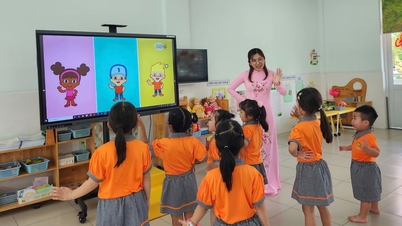
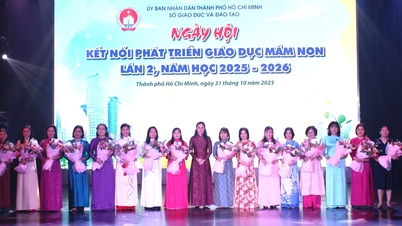
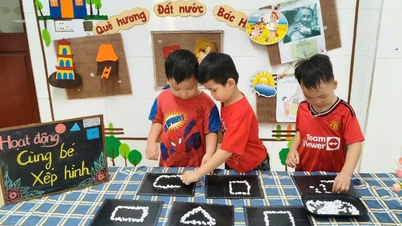


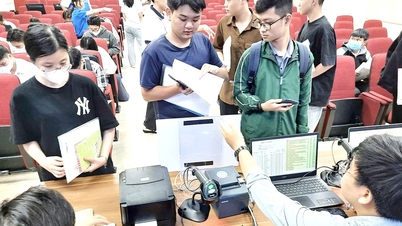


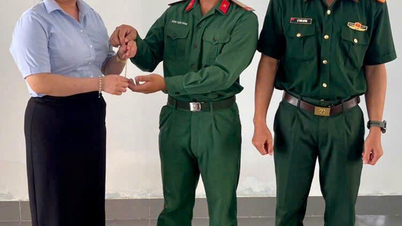

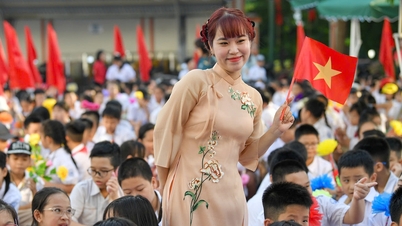










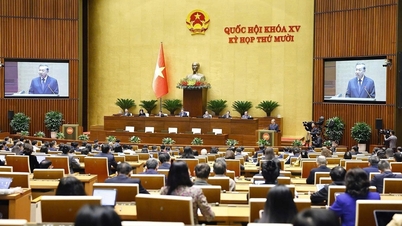

































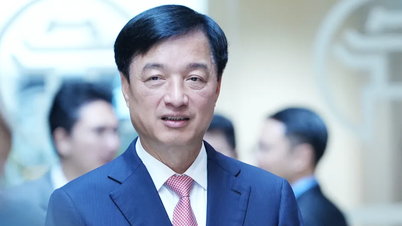


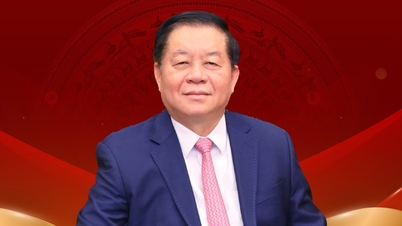









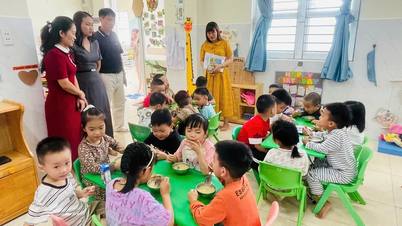





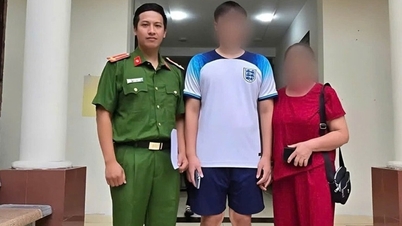
















Comment (0)